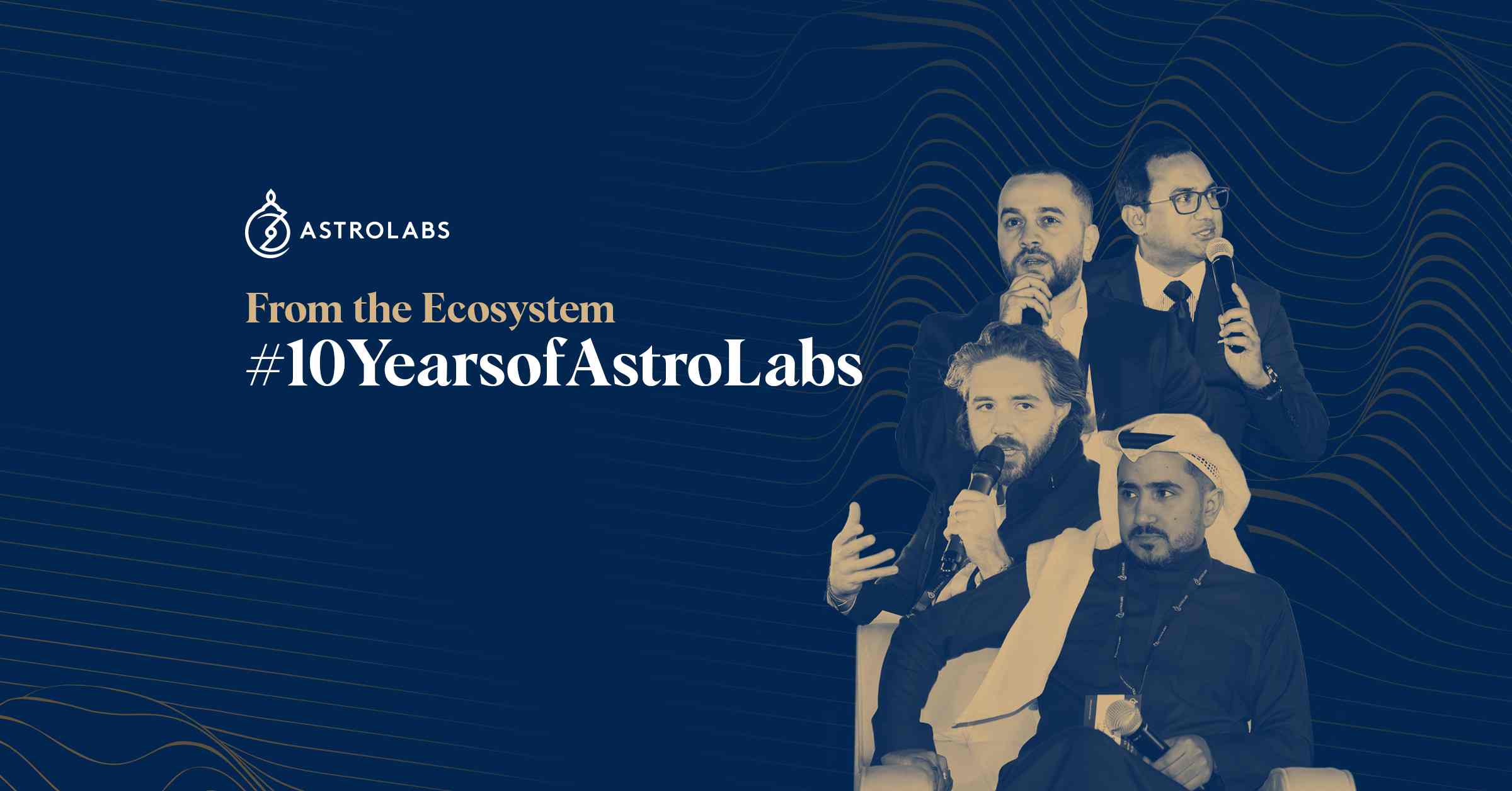Ten years of shifting culture, upskilling talents, pursuing opportunities, and funding big ideas have transformed Saudi Arabia’s entrepreneurship into a unique ecosystem with global appeal. We gathered Saudi’s top entrepreneurs and ecosystem builders to share their stories at our 10th Anniversary earlier this month.
The Saudi Arabian ecosystem has undergone a significant transformation over the past decade. Ten years ago, it was challenging to find partners willing to take a risk on a startup idea, but today, the Saudi entrepreneurial culture has grown exponentially, with Saudis and Saudi-based talents becoming known for their ambitious innovation.
The digital transformation of Saudi Arabia has been a long time in the making, with several key initiatives driving its growth: The establishment of the King Abdullah University of Science and Technology (KAUST) and the extensive investment in technology by entities such as the Saudi Venture Capital Company (SVC) and the Saudi Public Investment Fund (PIF), for example.
The true transformation, however, took root in the enablement of tech talent, the culture shift towards entrepreneurship, and the large-scale support and investment in technology and digital adoption. Here are our biggest takeaways from the AstroLabs 10th anniversary panels earlier this month:
Catch the latest. Subscribe to our monthly dispatch!
Evolution of Saudi Arabia’s Entrepreneurship Culture
Baseline: Saudi Entrepreneurs Enter the Race
Abdallah Bin Shamlan, the co-founder of Speero, a Saudi-based digital platform for automotive services, began his entrepreneurial journey back in 2017. Today, Speero is recognized as one of the fastest-growing startups in its industry after raising a stellar $1.8M Series A round. Despite their current success, Bin Shamlan acknowledged that launching Speero in today’s ecosystem would be a different experience, particularly given the relatively nascent entrepreneurial culture in Saudi Arabia back then.
At the time, Bin Shamlan noted how challenging it was to find a partner who was willing to take a risk on a startup idea. Founders during that period had to navigate the early stages on their own. On one end, investors and founders were apprehensive about taking chances on startups, which was still a new concept. On the other hand, while talents showed promising potential, they weren’t readily available.
Saudis and Saudi-based talents have earned a reputation for being ambitious innovators. The challenge was not competence, it was engagement. Bin Shamlan underlined how difficult it used to be to recruit local talents, as startup culture was still tentative, and candidates were unsure of its outcome.
The international talent pool presented a different challenge. For candidates hailing from outside the Kingdom, it was a matter of convincing them to relocate and operate in Saudi Arabia. Multi-nationals were naturally hesitant to enter the market, but the spike in opportunities and the enhancements in quality of life has turned the Saudi ecosystem into an attractive playing ground for global players.
Funding the Future for Saudi Arabia’s Entrepreneurship:
Stakeholders Recognize the Impact of Startups
Several successful startups have emerged in the kingdom over recent years, including online grocery platform Nana, fintech company Tamara, e-commerce enabler Salla, Arabic-powered social media analytics platform Lucidya, as well as food delivery platform and the first tech startup to IPO Jahez. While VC investment in Saudi-based startups crossed the $1Bn mark for the first time in 2022, the landscape of Saudi Arabia’s entrepreneurship was immensely different in 2015 or even further in 2010.
When H.E. Dr. Nabeel Koshak, who now heads the Saudi Venture Capital Company to direct the influx of investment being made in Saudi-based funds, was spearheading the early days of the Waddi Makkah startup programs experience, he was met with skepticism. Dr. Koshak saw the potential in this nascent ecosystem as early as 2010, embracing his academic playing field to run accelerator/incubator and startup grant funding programs at Um Al Qurah University.
3 years later, AstroLabs’ founding partners head their first startup accelerator program in Riyadh, working with Saudi-based entrepreneurs on their digital and innovation challenges. While some of the founders of these two programs later went on to build scalable digital ventures such as Salla, Speero, and Lucidya, the early-mover positioning of these programs held up a cultural ripple effect that will put Saudi Arabia in the lead- 10 years later.
To understand the extent of this shift, it is interesting to examine the evolution of two core drivers of innovation: Dedicated funding and specialized talent.
In 2022 Saudi Arabia has fully embraced innovation. The startup ecosystem has seen over 1 billion USD in VC investment, a staggering 70% increase since 2018. Startups have gained credibility, unicorns like Unifonic are putting Saudi Arabia on the global map, and venture capital-backed startups are getting listed in the stock market. The number of Saudis employed in the technology sector increased by 30% in 2020, reaching more than 130,000 employees. The number of IT graduates from Saudi universities increased by 38% between 2015 and 2019.
The Golden Accelerator
Upskilling Locally and Engaging Globally
With time, ecosystem builders like AstroLabs, as well as governmental entities, have helped equip the pool of local talents with the capabilities, infrastructure, and mindset needed to thrive within the entrepreneurial ecosystem. With a visionary roadmap toward global attractivity, rapid digital adoption, and economic diversification, Saudi Arabia became the expanding market of choice for global players.
Saudi Vision 2030 was a prime motivator of expansion for Rahul Arya, the Managing Partner of global data consultancy Artefact. After operating in 10+ global markets, Artefact made the move into the Kingdom well over a year ago.
The rapid expansion of global players like Artefact into Saudi Arabia over the past years helped talents from across the globe exchange knowledge and introduce lean frameworks locally. The readiness of talent and the engagement with the global workforce, in that regard, has amplified and accelerated Saudi’s digital and technological transformation.
Ten years of shifting culture, upskilling talents, pursuing opportunities, and funding big ideas have transformed Saudi Arabia from a promising market to a unique ecosystem with global appeal.
Plenty of founders are ready to bring ideas to life, and investors are now firm believers in the power of startups. A new generation of specialized local talents has already hit the market, and global players are unlocking the ecosystem’s potential.
How are global players like Artefact, amongst a cohort of 300+ companies expanding into Saudi Arabia with AstroLabs, enhancing the local makings in the Kingdom? What is the role of SMEs in this entrepreneurial challenge? More on this in our upcoming releases!
Be the fastest to expand and set up in Saudi Arabia. Book Your Free Consultations Today!

